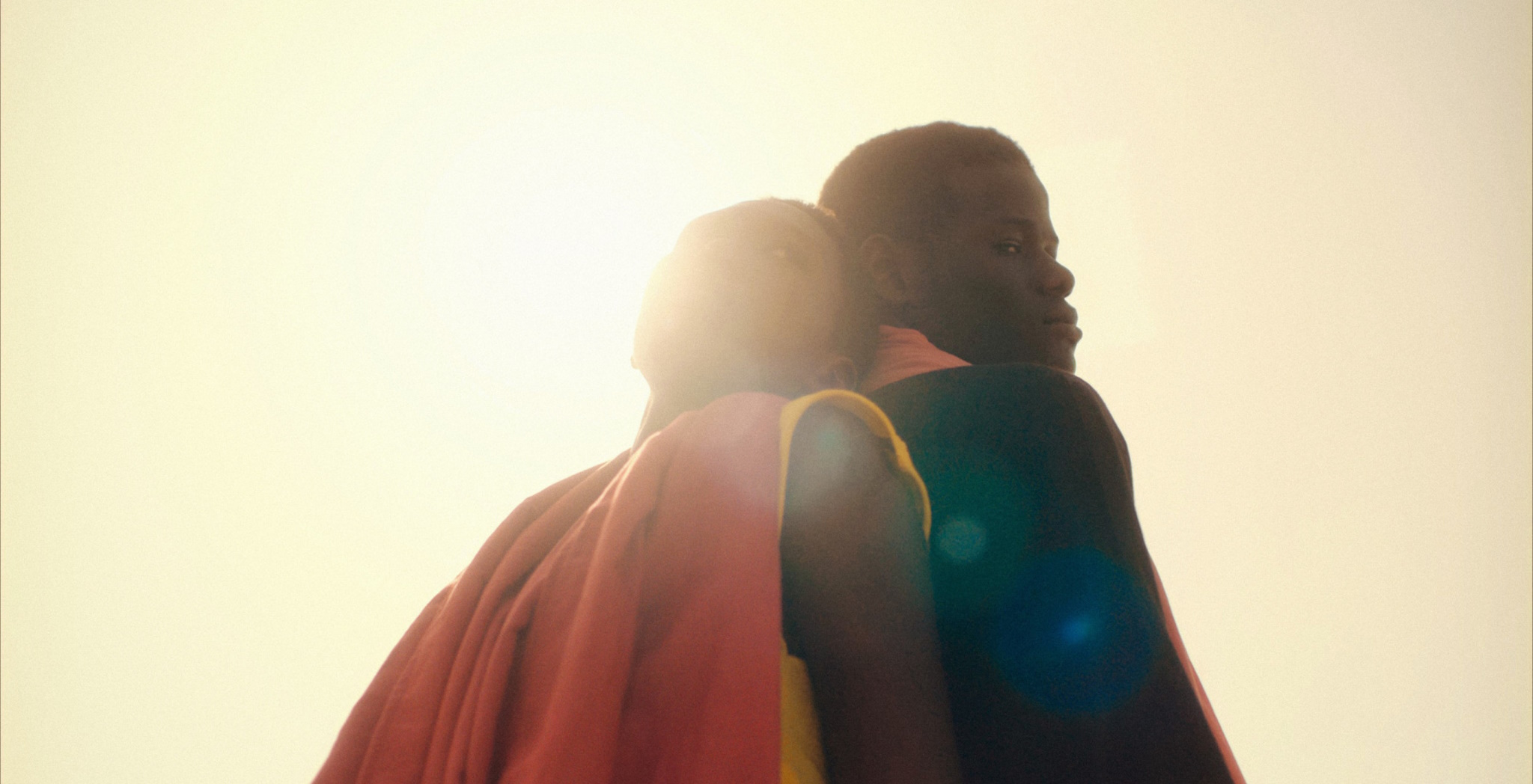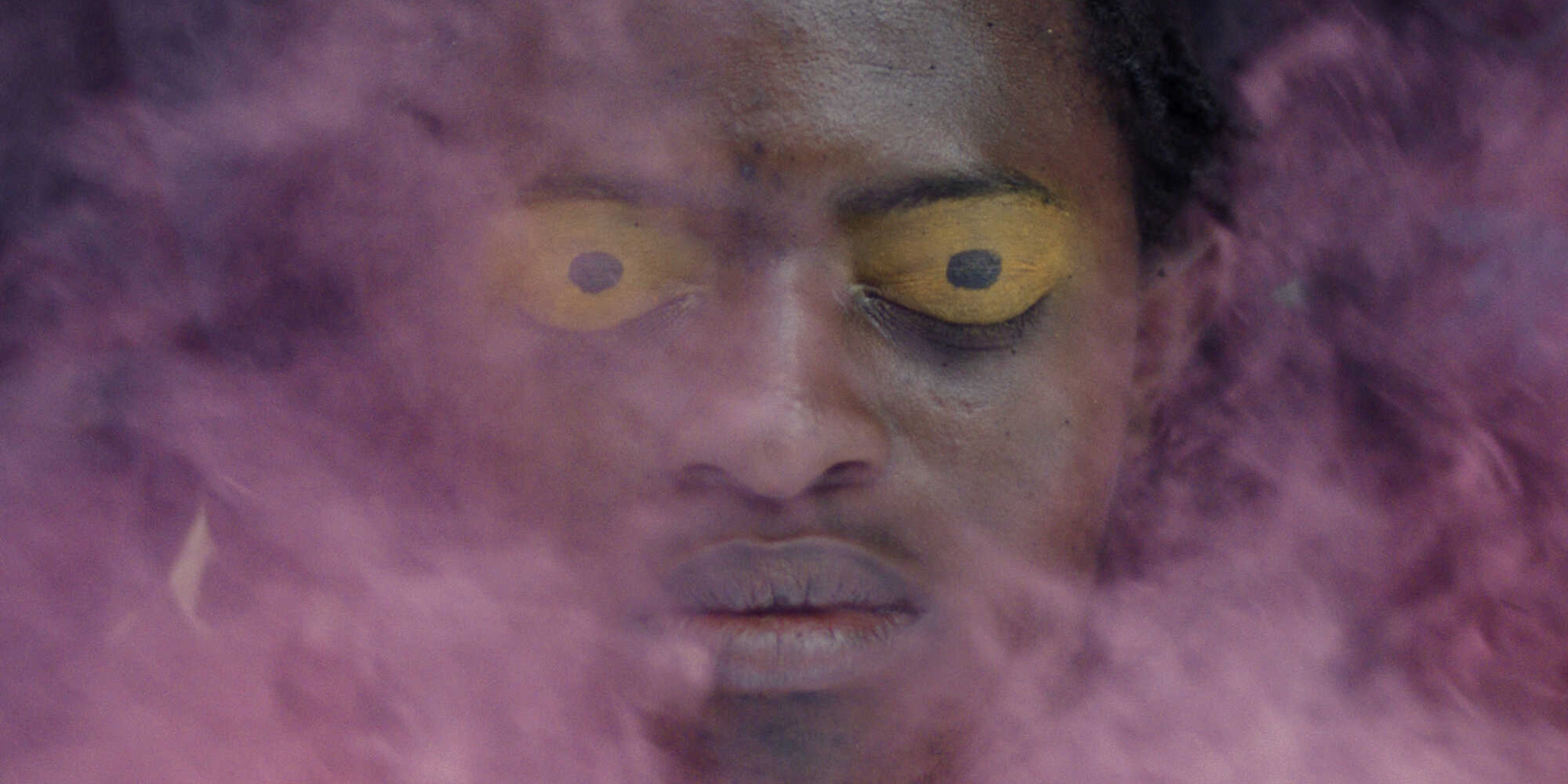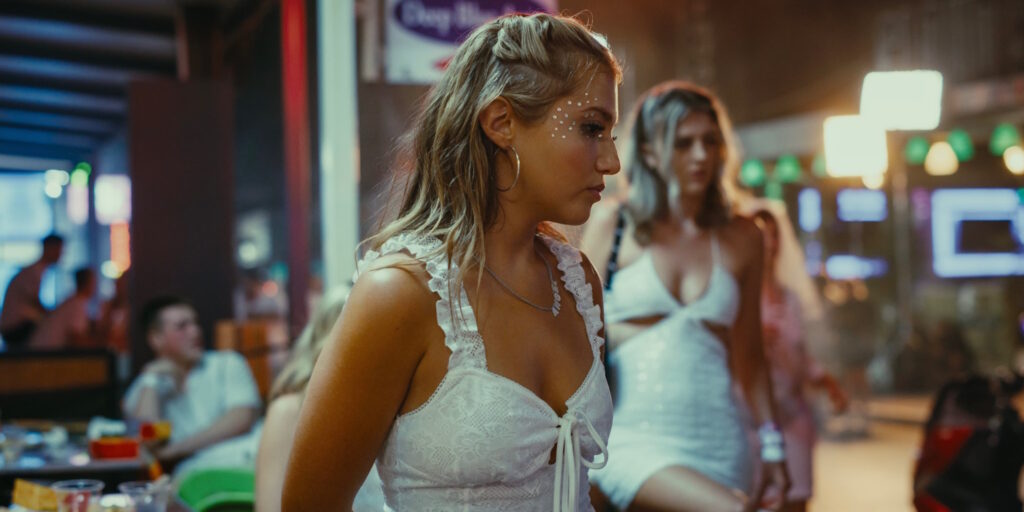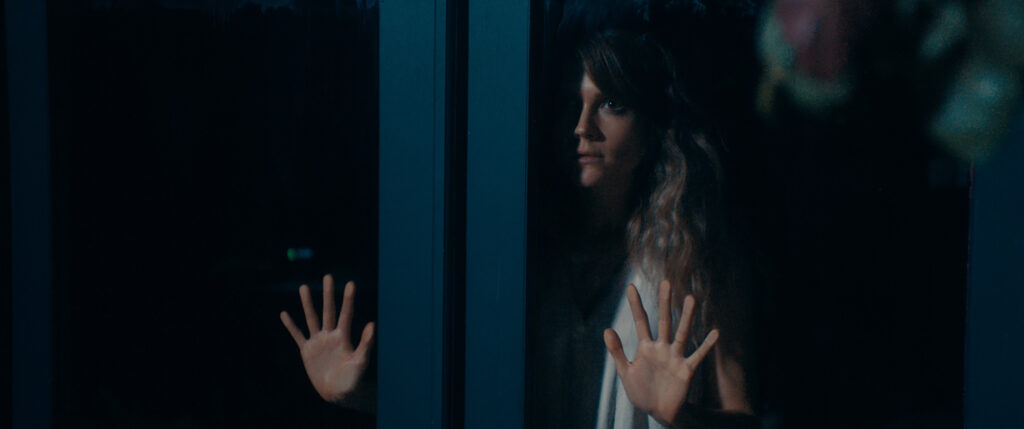In her novel The Bell Jar, Sylvia Plath observed that if “you expect nothing from somebody, you are never disappointed.” A basic concept, but nevertheless profound. No hope equals no letdowns. Imagine that. It’s not too far off from Alexander Pope’s famous 1727 quote, either: “Blessed is he who expects nothing, for he shall never be disappointed.” Evidently, people have been pondering this idea for centuries: If you don’t make any assumptions, then you won’t ever be discouraged. It sounds nice. (Not to mention safe.) Too bad it’s just not realistic. Truth be told, there’s no fending off the expectations of others. Consequently, there’s no avoiding the tormentous sensation of being let down. Two new African debut features, Omen and Banel et Adama, explore this inevitability with an effective magical-realist slant.
The ambitious brainchild of Belgian-Congolese rapper-director Baloji, Omen tells three stories in one, each woven into the fibers of the others. The first (and longest) follows Koffi (Marc Zinga) and his pregnant partner, Alice (Lucie Debay), as he returns to his home country of Congo. This won’t be a hiccup-free homecoming for Koffi for a few reasons: The mother of his children is white, they’re expecting twins, and — most controversially — he’s been cast out by his family based on accusations that he’s an evil sorcerer. The second thread tracks Paco (Marcel Otete Kabeya), a young sorcerer himself, as he navigates life in the streets as a cultural pariah. The third explores life for Tshala (Eliane Umuhire), Koffi’s sister and fellow forsaken sibling, whose progressive views clash with the antiquated ways of the local tribes.
With so much talk of superstition, spells, and sorcery, there’s one curse that isn’t discussed but nevertheless strongly felt: that of expectations. These include Mama Mujila’s (Yves-Marina Gnahoua) expectations for her children, Paco’s expectations as a brother, and even Koffi and Alice’s expectations of one another (and the same for Tshala and her boyfriend). These unspoken feelings hover over the characters’ heads like storm clouds of disappointment. In each of these cases, that which is not being said functions like a malediction. Thoughts like “How dare they show up here …” or “The nerve they have to act that way …” are communicated through angry looks and deadly glares, damning former friends and family members for crossing invisible lines that were never explicitly drawn, only ever assumed.

Banel et Adama, from Senegalese filmmaker Ramata-Toulaye Sy, delivers a much less complicated narrative with a comparably supernatural spin. After pining for one another throughout their youth, the titular couple is finally brought together by fate, following the death of Banel’s (Khady Mane) older brother, Yero. Though Adama (Mamadou Diallo) is overjoyed at the chance to wed her one true love, it’s Yero she was initially paired with — and what’s more, Yero who was originally destined to be chief. It’s an expectation that now rests on the shoulders of her new husband, Banel, the family’s last surviving male. However, the longer she encourages him to resist his destiny, the harsher the universe seems to lash out at their remote village community.
Clearly, the curse of expectation haunts Banel et Adama just as it does Omen. What a mother feels her son should do. What that man’s uncles have been training him for. What a wife envisions for her life with her spouse. What a couple anticipates from their future. And what they all presume the universe will provide if they play by the rules they believe a higher power has laid out for them. Expectations, almost all treated as certainties rather than mere possible outcomes. Compared to Omen, the disappointment the viewer feels for the protagonists comes off as so much more heartbreaking because of the sheer amount of time spent with the central pair. The certainty of this pain — as in William Shakespeare’s Romeo and Juliet, which was undoubtedly a touchstone — doesn’t soften its impact.
Culture, community, religion, race, relationship: All come with a set of unstated standards with the power to completely possess a person if they aren’t careful. In Omen, this possession is shown literally by people’s actions: violent seizures, ancient rituals, dark incantations, all depicted through Baloji’s super-stylized and extremely colorful lens. In Banel et Adama, it’s a more distant thing: the land, the air, the weather. The natural world is what’s possessed, and the people of the village are left to deal with the consequences. Universe curses man, man curses man, man curses universe, it doesn’t matter. As Omen and Banel et Adama show, to hold someone or something to your own silent standards is to curse that person or thing to fail.
For all the structural troubles that come from juggling three sizable storylines in one, Omen is nonetheless a distinct (and highly engaging) first film for Baloji. Likewise, Ramata-Toulaye Sy’s foray into the feature-length realm makes for a beautiful, immensely moving introduction to her work. When viewed in short succession — the two played at the 2023 Cannes Film Festival, and they’re playing together again this weekend at the 2024 African Film Festival at Washington University — they work remarkably well as a pairing. Omen and Banel et Adama really build off of one another in this way, strengthening their respective arguments through proximity. Pope and Plath were certainly on to something, but Baloji and Ramata-Toulaye Sy’s films present a unique alternate take: Cursed is the one who’s expected to do something, for they are damned to disappoint.
Omen screens Friday, Mar. 22 with the short film “Malika”. Banel & Adama screens Saturday, Mar. 23 with the short film “Father’s Day”. Both presentations will begin at 7 p.m. at Washington University’s Brown Hall, Room 100. Admission is free.
The 2024 African Film Festival runs Mar. 22-24. More information, including a complete schedule of events, is available here.





One Response
This is brilliant. It is such a great way to think of the pairing and even Sunday night’s – expectations of a husband/father in the family in urban Senegalese culture but in a funnier way.